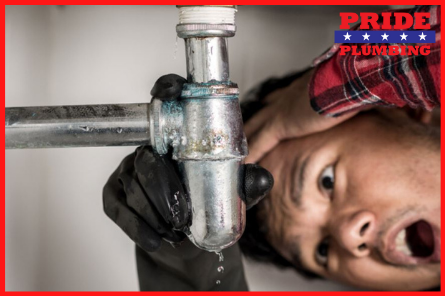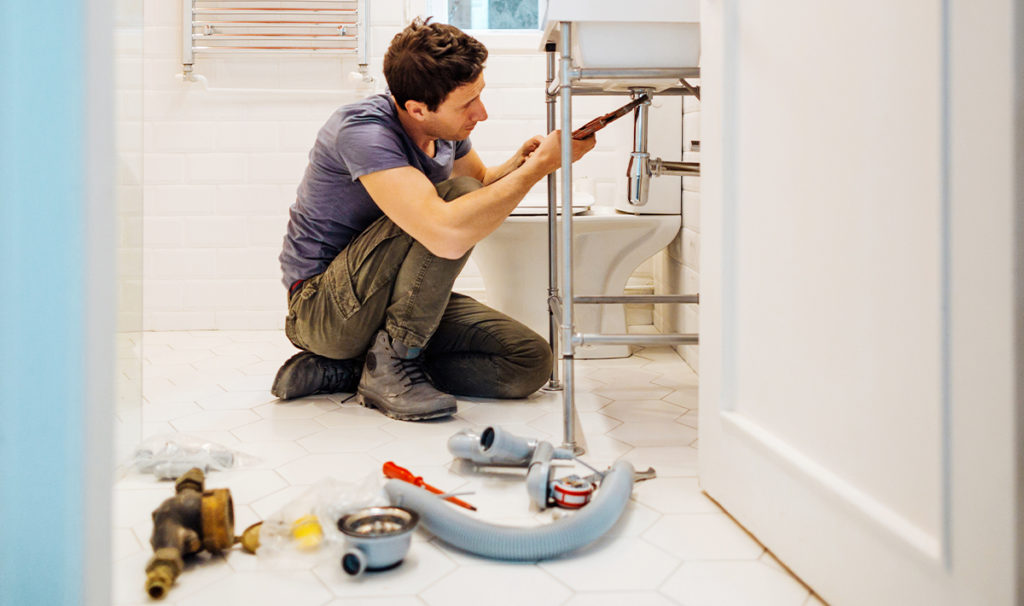All Categories
Featured
Table of Contents

[/image][=video]
[/video]
Nevertheless, before you hurry to call a plumber or make some poor DIY choice, you may want to take a look at these pipes keys that can conserve you time and cash. It is very important to understand where you water shut down valve is in your home, as this can conserve you from more serious damage when pipes concerns happen.
Once whatever is turned off, take an appearance at your water meter. An ongoing activity on your water meter when all water resources are turned off is a clear red flag that requires instant attention.
Nevertheless, slow drains are typically an early caution sign of a bigger concern. It could indicate a blockage planned, a trouble with your sewage system line, and even tree roots infiltrating your pipes. Instead of awaiting the drainpipe to become completely obstructed, take activity as soon as you observe a slowdown.

If these do not work, it may be time to call in a professional. Overlooking the concern could cause extra severe and expensive troubles down the line. Recognizing where your primary water shutoff valve is can conserve you from prospective water damages in case of a major leakage or plumbing catastrophe.
Should I Hire A Plumber?
Make certain every home adult understands where the shutoff valve is and exactly how to utilize it. In the occasion of a severe leakage, promptly shutting off your home's water can decrease damage and offer you peace of mind while you await a plumbing technician to get here. It's a preferred idea that chemical drain cleaners are the utmost service for clogged up drains pipes a notion that couldn't be even more from the reality.
The chemicals can wear away the inner lining of the pipes, leading to damaged frameworks, leaks, and also pipe ruptureds. They can seep into groundwater and contaminate it, posing risks to local ecological communities.
These devices can effectively clear blockages without causing any damage to your pipelines. If these techniques do not work, do not be reluctant to call a specialist. Also, bear in mind that prevention is constantly far better than remedy. Prevent pouring grease, oil, or any type of strong waste down your drains, as they can strengthen and trigger obstructions.

Over-tightening can lead to many problems, consisting of removed screws and busted screws, resulting in leakages or even water damage. This typical mistake in DIY plumbing jobs can turn a minor repair work right into a pricey undertaking.
Should I Do My Own Plumbing?
This must make sure a good seal without damaging the suitable or the pipeline. Bear in mind, if a leak happens, it's easier (and generally cheaper) to tighten up a fitting than to replace a broken one. Plumbing technician's tape, or Teflon or string seal tape, is a must-have device for each homeowner. It produces leak-proof seals at pipe threads, stopping leakages at joints and links.

Prior to connecting any kind of installations, take a moment to wrap a few layers of plumbing's tape around the strings in a clockwise direction. Make sure the tape covers all the strings and is wrapped securely. This basic yet vital action can save you from handling irritating leakages down the line.
Bear in mind that for bigger concerns, specialist aid is constantly recommended. To avoid this from occurring, consider setting up pipeline insulation.
And also, throughout cooler months, pipeline insulation can help prevent your pipes from freezing and bursting a circumstance that can bring about expensive repair work. When it concerns sealing fixtures like taps, several DIY lovers naturally grab a plumbing's putty. There's a choice that may offer you much better silicone caulk.
Should I Hire A Plumber?
This flexibility permits it to fit small shifts or motions without damaging the seal, giving a more durable and resilient option. Simply keep in mind to allow the caulk remedy completely according to the maker's instructions before revealing it to water to make sure the ideal outcomes. "Doping" in pipes refers to applying pipe dope, or pipeline joint compound, to the threads of plumbing links prior to they're screwed with each other.
Latest Posts
Emergency Plumbing nearby ,
Emergency Plumbing
Plumbing